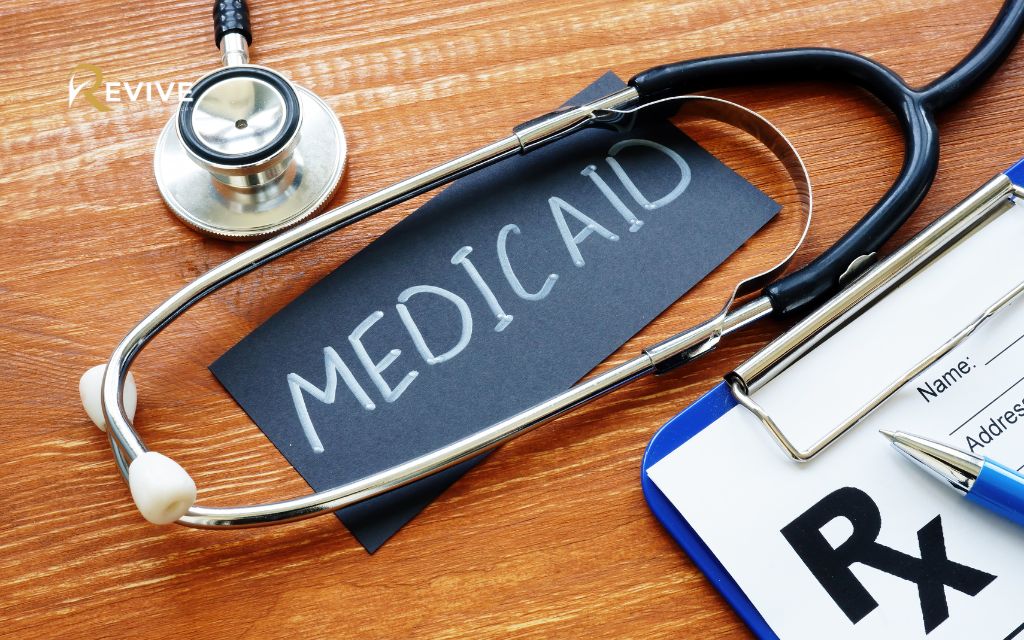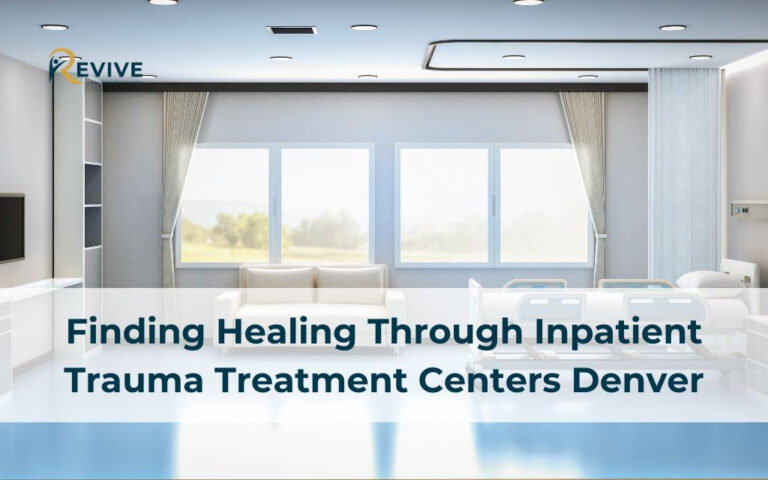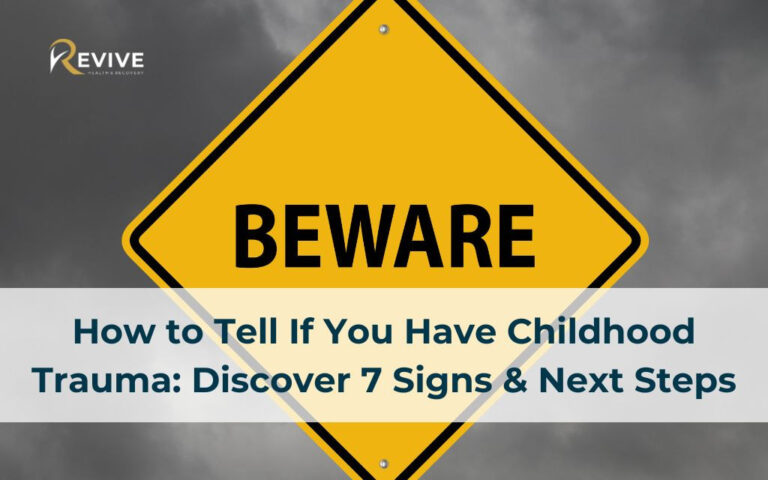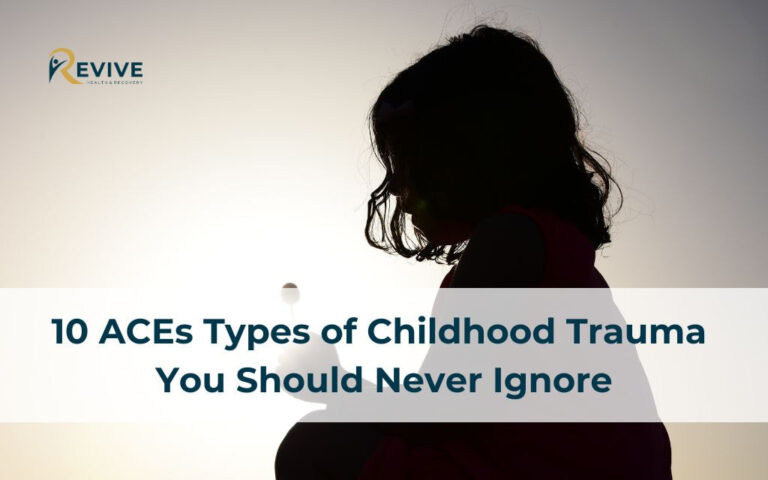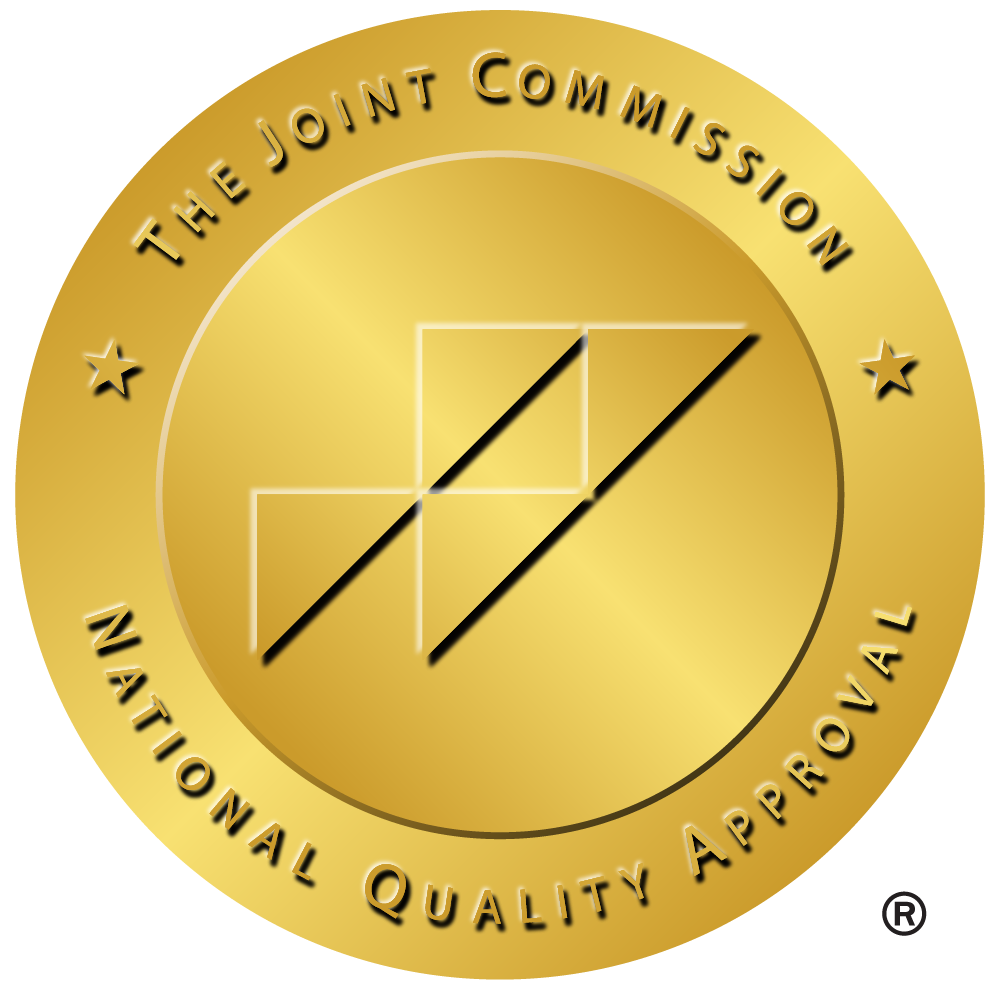Accessing quality mental health care can be challenging, especially when financial concerns come into play. Many individuals in need of intensive treatment struggle to find inpatient mental health facilities that accept Medicaid near me, making it difficult to get the care they deserve. However, Medicaid-covered treatment options do exist, offering life-changing support for those facing severe mental health conditions.
Inpatient mental health facilities provide structured, round-the-clock care for individuals dealing with different conditions. These facilities offer intensive therapy, medication management, and a supportive environment to promote long-term recovery.
In this guide, we’ll explore how to locate inpatient mental health facilities that accept Medicaid, what to look for in a program, and how these facilities can support recovery. If you’re in Denver, Revive Health Recovery is a leading provider of compassionate mental health care, ensuring individuals receive the help they need.
Let’s dive into this important health topic and explore how to find the right inpatient treatment option for you or your loved one.
What Are Inpatient Mental Health Facilities?
Inpatient mental health treatment means staying in a psychiatric hospital for a short time so that a team of mental health professionals can closely monitor your symptoms and provide focused care. In Ireland, psychiatric units are usually found inside general hospitals, making it easier for people to get the support they need.
Most people only stay in inpatient care for a short period, usually around 2 weeks. The goal is to help stabilize symptoms so that individuals can transition to less intensive mental health support when they’re feeling better.
Who Should Consider Inpatient Treatment?
Inpatient mental healthcare is a good option for people who are struggling with severe mental health symptoms that make it hard to go about daily life. Some mental health conditions require more intensive care, and a short stay in a treatment center can provide the support needed to start feeling better.
Someone may benefit from inpatient treatment if:
- They are having suicidal thoughts or behaviors that can’t be managed at home.
- They struggle to take care of themselves (such as eating, bathing, or getting dressed).
- Their mental health condition poses a danger to themselves or others.
- They are experiencing hallucinations or overwhelming thoughts.
- They need help managing medication and treatment plans.
- They have tried other treatments, but nothing has worked.
- They are struggling with severe addiction issues and need more structured support.
- Their mental health condition has led to physical health issues that require medical care.

Benefits Of Getting Inpatient Support For Mental Health Issues
Choosing inpatient treatment can provide many benefits that help people on their path to healing. Here’s how it can make a difference:
- Expert Care from a Supportive Team: In the hospital, you’ll have round-the-clock support from a highly trained team of mental health professionals. They will help with both emotional and medical needs to make sure you get the best care possible.
- A Structured Routine: Having a set schedule can make a big difference in recovery. Your days will include therapeutic activities, counseling, and wellness exercises, all designed to help you feel better and regain stability.
- A Safe and Peaceful Environment: Sometimes, taking a break from your home environment can be helpful. Inpatient care gives you a safe place to focus on yourself without outside distractions or stress.
- Support for Addiction Recovery: If you are struggling with addiction, inpatient treatment allows you to detox safely with professional support, making the process easier and more manageable.
- Connection with Others: You won’t be alone in your journey. Inpatient treatment gives you the chance to meet and share experiences with others who understand what you’re going through, providing peer support and encouragement.
What Is Medicaid?
Medicaid is a healthcare program in the United States that helps low-income individuals and families get the medical care they need. It is funded by both the federal and state governments, making sure that people who need support can access essential health services.
While Medicaid rules can be different in each state, here are some basic things that help determine who qualifies:
- Income: To qualify, a person or family must have an income below a certain level. This limit is based on a percentage of the federal poverty level (FPL) and can vary by state.
- Family Size: The number of people in a household, including adults and children, plays a role in determining eligibility.
- Age: Medicaid provides coverage for people of all ages, including children, adults, and seniors.
- Pregnancy: Pregnant women with low income may qualify for Medicaid during pregnancy and after childbirth to ensure both mom and baby receive proper care.
- Disability: People with disabilities may still qualify for Medicaid even if their income is higher than the standard limit.
- Expanded Coverage: Many states have expanded Medicaid to cover more people, including adults with incomes up to 138% of the federal poverty level (FPL).
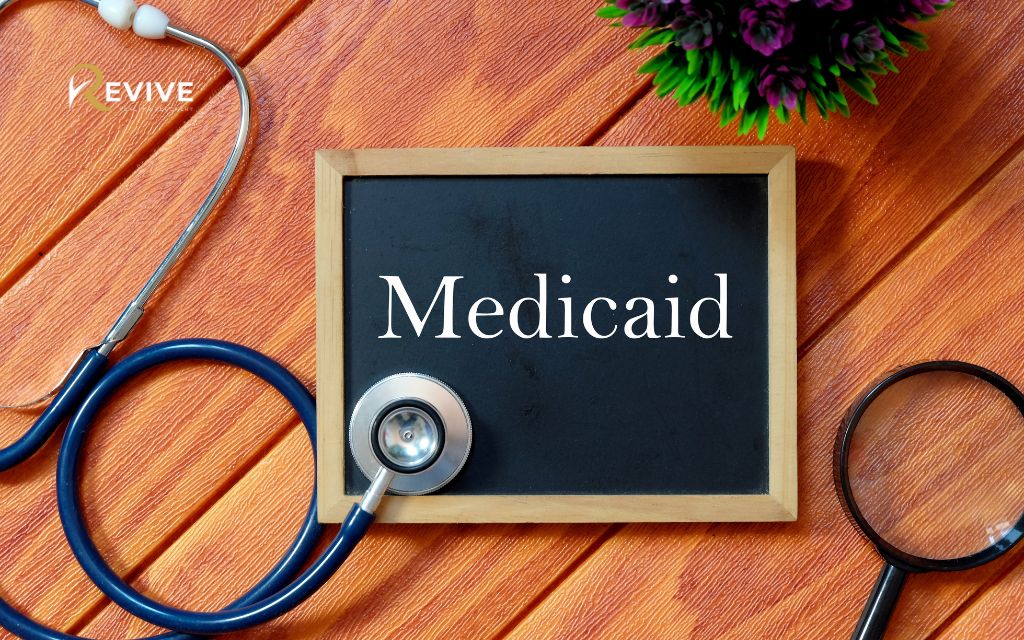
Benefits of Finding Inpatient Mental Health Facilities That Accepts Medicaid Near Me
Finding an inpatient mental health facility that accepts Medicaid can be a huge step toward recovery, especially for those who need support but can’t afford private treatment. Here are some of the key benefits that make these programs a great choice:
Affordable Treatment
For people struggling with substance use disorder, cost can be a big barrier to getting help. Inpatient mental health facilities that accept Medicaid near me offer little to no-cost treatment for eligible individuals, making quality care accessible to more people.
Comprehensive Care
Inpatient facilities provide more intensive and well-rounded care than outpatient programs. Medicaid covers a wide range of treatment services, including:
- Medical detox to safely remove substances from the body.
- Medication management for withdrawal and cravings.
- One-on-one and group therapy to work through emotional struggles.
- Dual diagnosis treatment for those with both addiction and mental health issues.
- Primary healthcare to support overall well-being.
A Safe and Structured Environment
One of the biggest challenges in addiction recovery is avoiding triggers and relapse. In a structured inpatient setting, people can:
- Follow a daily routine that encourages healthy habits.
- Stay away from negative influences that may lead to relapse.
- Focus fully on healing without outside distractions.
Peer Support and Connection
Recovery is easier when you’re not alone. In inpatient rehab, people connect with others who are facing similar struggles, which helps:
- Build strong support systems.
- Encourage motivation and accountability.
- Create friendships that continue even after treatment ends.

Professional Care and Guidance
These facilities are staffed with experienced medical and mental health professionals, including:
- Doctors and nurses to monitor physical health.
- Therapists and counselors to help with emotional healing.
- Addiction specialists who create personalized recovery plans.
Long-Term Support and Aftercare
Recovery doesn’t stop when treatment ends. Inpatient mental health facilities that accept Medicaid often include aftercare planning to help people adjust to life outside treatment. This can include:
- Outpatient therapy for continued mental health support.
- Support groups like AA or NA.
- Sober living programs to maintain a drug-free lifestyle.
- Medication management for long-term recovery.
A Holistic Approach to Healing
Many Medicaid-covered inpatient mental health treatment focus on treating the whole person, not just the addiction. This means using different types of therapy to help with physical, emotional, and spiritual healing.
How to Find Inpatient Mental Health Facilities That Accept Medicaid Near Me?
Every inpatient mental health facility is different, so it’s important to find one that fits your needs while staying within your budget. If you’re looking for an inpatient facility that accepts Medicaid, here are some key things to consider:
Medicaid Coverage
- Make sure the rehab center accepts Medicaid and check what services are covered.
- Ask if there are any out-of-pocket costs or copayments so there are no surprises.
Location
- Some people prefer a facility close to home to stay connected with family and support.
- Others may do better in a new environment, away from triggers. Think about what works best for you.
Accreditation and Licensing
Choose a licensed and accredited facility. Look for approvals from organizations like The Joint Commission, which ensures quality care.
Treatment Approaches
- Different centers use different treatment methods. Some focus on therapy and medication, while others use holistic healing methods.
- Find a center that matches your personal recovery goals.
Specialized Programs
- If you have co-occurring disorders (such as trauma, anxiety, or depression), look for a center that offers specialized care.
- Some rehab centers also provide gender-specific or culturally sensitive programs for a more comfortable experience.
Length of Treatment
Rehab programs can last from a few weeks to several months. Consider what works best for your needs and what Medicaid covers.
Aftercare Planning
Recovery doesn’t stop when you leave rehab. Find out if the center offers aftercare services like:
- Outpatient therapy
- Support groups (like AA or NA)
- Sober living options
Peer Support
Being around others who understand your journey can be life-changing. Ask about group therapy and peer support programs, as they can provide encouragement and motivation.

Are There Any Limitations of Inpatient Mental Health Facilities That Accept Medicaid Near Me?
Medical Necessity
Medicaid covers inpatient mental health facilities when a doctor or medical professional decides it’s medically necessary. This decision is based on your health condition, addiction severity, and need for 24/7 care. Your treatment progress is reviewed regularly to determine how long Medicaid will cover your stay.
Prior Authorization
Some states require prior approval before extending inpatient treatment past a certain period. This means the facility must get permission from Medicaid to continue covering your care.
Condition Severity & Length of Stay
The time you spend in facilities depends on how severe your addiction is. Some people need only one or two weeks, while others may need several months for full recovery. More complex cases usually require longer stays to ensure lasting success.
Continued Care After Treatment
Medicaid often covers follow-up care to help people stay on track after leaving rehab.
This can include:
- Adult psychiatry services for mental health support.
- Outpatient therapy to continue working through challenges.
- Support groups to help maintain sobriety.
Out-of-Pocket Costs
While Medicaid covers most mental health facility expenses, there may be small out-of-pocket costs like:
- Copayments (a small fee for services).
- Deductibles (a set amount you pay before coverage starts).
These costs depend on your state’s Medicaid program and your income.
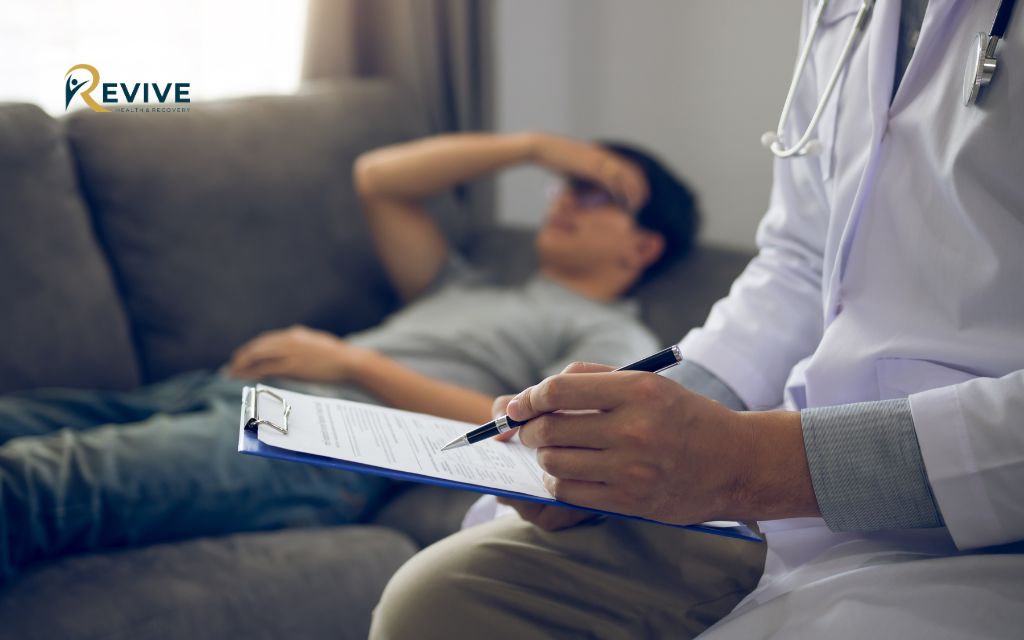
Additional Resources for Medicaid Mental Health Support
Getting the right mental health care can feel overwhelming, especially when money is tight. If you’re looking for inpatient mental health facilities that accept Medicaid near me, there are helpful resources that can guide you in the right direction.
Hotlines and Support Services
If you need immediate help or guidance, these hotlines are available 24/7:
- National Suicide Prevention Lifeline – Call 988 for free, confidential support if you or someone you know is in crisis.
- SAMHSA’s National Helpline – Call 1-800-662-4357 for treatment referrals and information about mental health and substance use services.
- Medicaid Customer Service – Contact your state’s Medicaid office to learn what mental health services are covered and find approved providers near you.
Community Mental Health Centers
Many local government-funded centers offer mental health services at low or no cost to those in need:
- Behavioral Health Crisis Services – Many counties provide crisis intervention and stabilization to help individuals and families in urgent situations.
- Community Mental Health Clinics – These clinics often accept Medicaid and offer therapy, psychiatric evaluations, and medication management.
Peer Support Groups and Online Communities
Sometimes, connecting with others who understand can make a big difference in your healing journey:
- NAMI HelpLine – The National Alliance on Mental Illness provides free peer support, referrals, and mental health information.
- Online Support Communities – Websites like Mental Health America offer forums and resources where people share experiences and coping strategies.
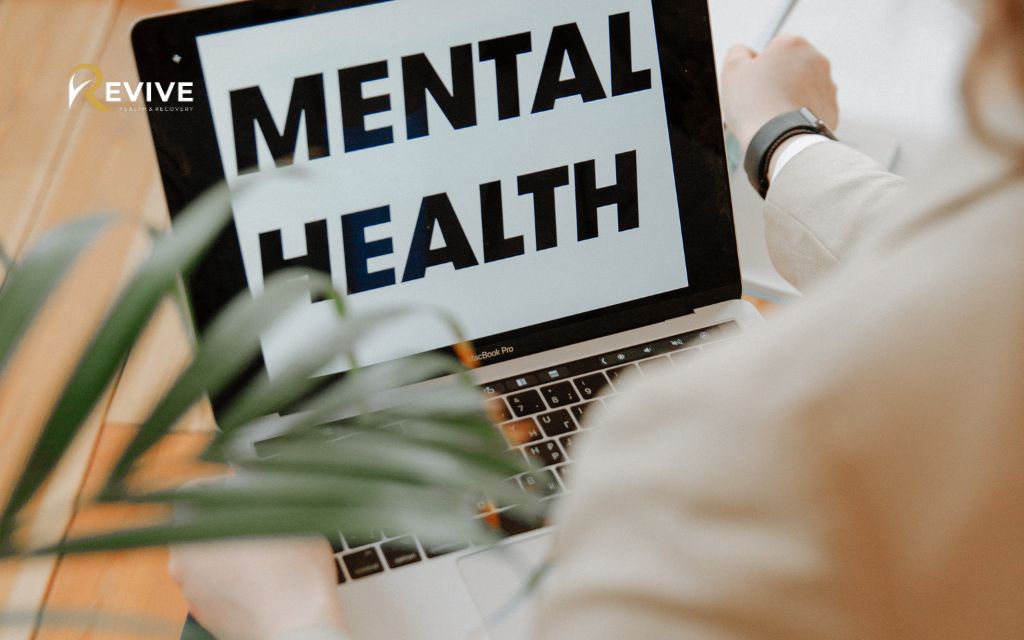
Conclusion
Inpatient mental health facilities that accept Medicaid near me provide life-changing care for those struggling with severe mental health challenges. These programs offer a safe and supportive space, combining therapy, medication management, and structured routines to help individuals regain stability.
Finding the right facility ensures access to compassionate professionals and effective treatment at little to no cost. If you or a loved one needs help, don’t wait—take the first step toward healing today. Support is available, and recovery is possible with the right care.
